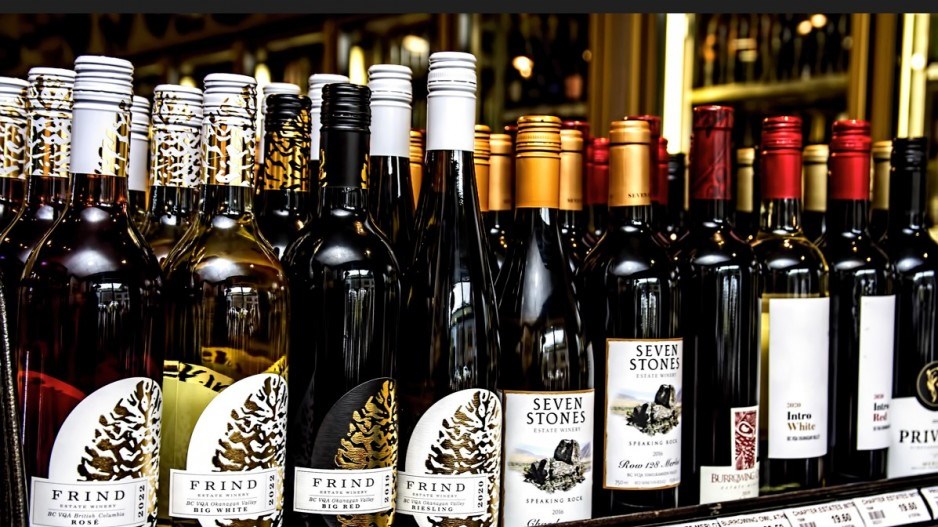Those who make and sell alcoholic drinks are balking at the federal government's planned 4.7-per-cent excise tax hike on April 1 – something that would filter through to hit consumers in the pocketbook.
They are urging Ottawa to reduce that increase to two per cent, which is what happened last year, when .
The excise tax is tied to inflation, and the only way it can be changed to be lower than inflation is if Parliament acts.
"There should be a cap on the excise-tax increase," Association for Beverage Licensees executive director Jeff Guignard told BIV this afternoon. "Otherwise, we're just punishing the very companies that are struggling right now, and they will have to pass on those costs to an industry that's struggling."
British Columbia Restaurant and Foodservices Association CEO Ian Tostenson concurred.
He told BIV today that he thinks an automatic excise-tax increase, tied to inflation, is "irresponsible." He has been an outspoken advocate for allowing small-business restaurant owners to have more time to repay Canada Emergency Business Account (CEBA) interest-free loans that the federal government provided during the pandemic. Failing to allow an extension, he said, could cause thousands of B.C. restaurants to permanently close.
The B.C. wine industry, which would be affected by this tax hike, has been reeling with vines and buds killed off by a deep freeze in December 2022 and then another one earlier this month.
"This is absolutely not the time for an excise tax hike tied to inflation," said British Columbia Wine Growers CEO MIles Prodan. "It would be a piling on of challenges on top of the extreme-freezing events, and other climate change impacts that our industry faces."
Here is how the excise tax on alcohol gets multiplied before being on retail products
The excise tax on alcohol, applied on manufacturers, gets multiplied at least twice before the consumer buys the products in bars, restaurants or stores.
Manufacturers factor the cost of the federal excise tax into the price they charge when selling to the provincial government. The British Columbia Liquor Distribution Branch (BCLDB) then adds a mark-up to that producers' price in order to determine a wholesale price. The BCLDB then uses that wholesale price to sell to its own stores, private retailers, bar owners and restaurant owners. Those buyers then add a margin to cover costs, and determine a price to charge the end customers.
B.C. winery owners, for example, . On a 750 ml bottle of wine, that adds $0.5265 worth of excise tax.
Together with the cost of wine bottles, as well as all costs related to growing and picking grapes, and producing wine, the winery owners' price to the BCLDB might be $10. The B.C. government then adds a mark-up in price that is 89 per cent on the first $11.75, and then 27 per cent on the rest of the cost of the wine. That creates a wholesale price for the wine that the BCLDB uses to sell to retailers, including its own stores.
Our winemaker who sells wine to the BCLDB at $10 in this example then sees the BCLDB slap an $8.90 mark-up on the wine to come up with an $18.90 wholesale price. For retailers who need to add a 30 per cent margin, that wine then gets priced at $24.57.
The proposed 4.7-per-cent excise-tax increase would amount to a $0.033 price hike at the producer level, and a $0.0624 increase after the province's 89-per-cent mark-up. After store owners' added margin, the excise-tax hike adds about $0.081 more to the retail price.
The same scenario plays out for spirits manufacturers, where a similar set of calculations play out. The government's excise tax is $13.303 for each litre of absolute ethyl alcohol. Most spirits are 40-per-cent alcohol, so the cost would be $5.3212 per litre, or $3.9909 for a 750 ml bottle.
The B.C. government then adds a 124-per-cent mark-up on spirits, so that excise cost rises to $8.939616. After a retailer's standard 30-per-cent margin is added, the excise tax has ballooned to become $11.622.
The proposed 4.7-per-cent hike in the federal excise tax on spirits therefore would increase the cost of a bottle of gin by $0.5462 to customers.
Beer Canada president CJ Hélie has been lobbying for the federal government to lower the excise-tax increase. His organization last year contracted Rick Moranis and Dave Thomas, who famously decades ago created the personas Bob and Doug McKenzie. The organization is doing something similar this year, according to .
The formula for how beer excise-tax hikes would filter down to the consumer is a bit more complicated than with wine or spirits, given that there are a wide range of BCLDB mark-up rates, depending on the size of the producer. Suffice to say, the tax hike on a six-pack of beer sold at retail would likely be somewhere in between the increase in cost for wine and for spirits.
Beer Canada notes that taxes on beer represent almost half of the retail price of beer in Canada, which is one of the highest percentages in the world.
Its website urges visitors to contact their member of Parliament to take action to reduce the planned excise-tax hike.



